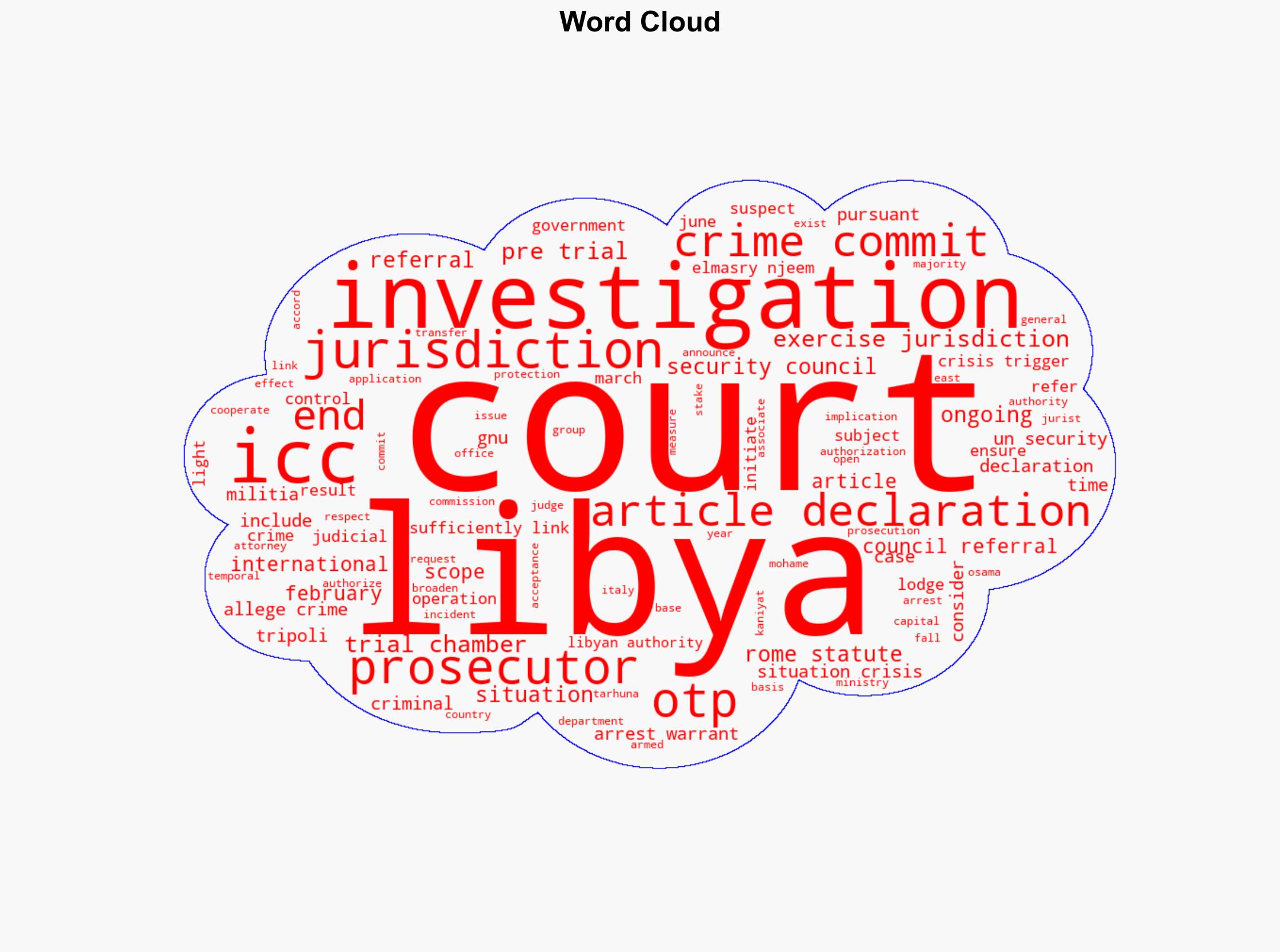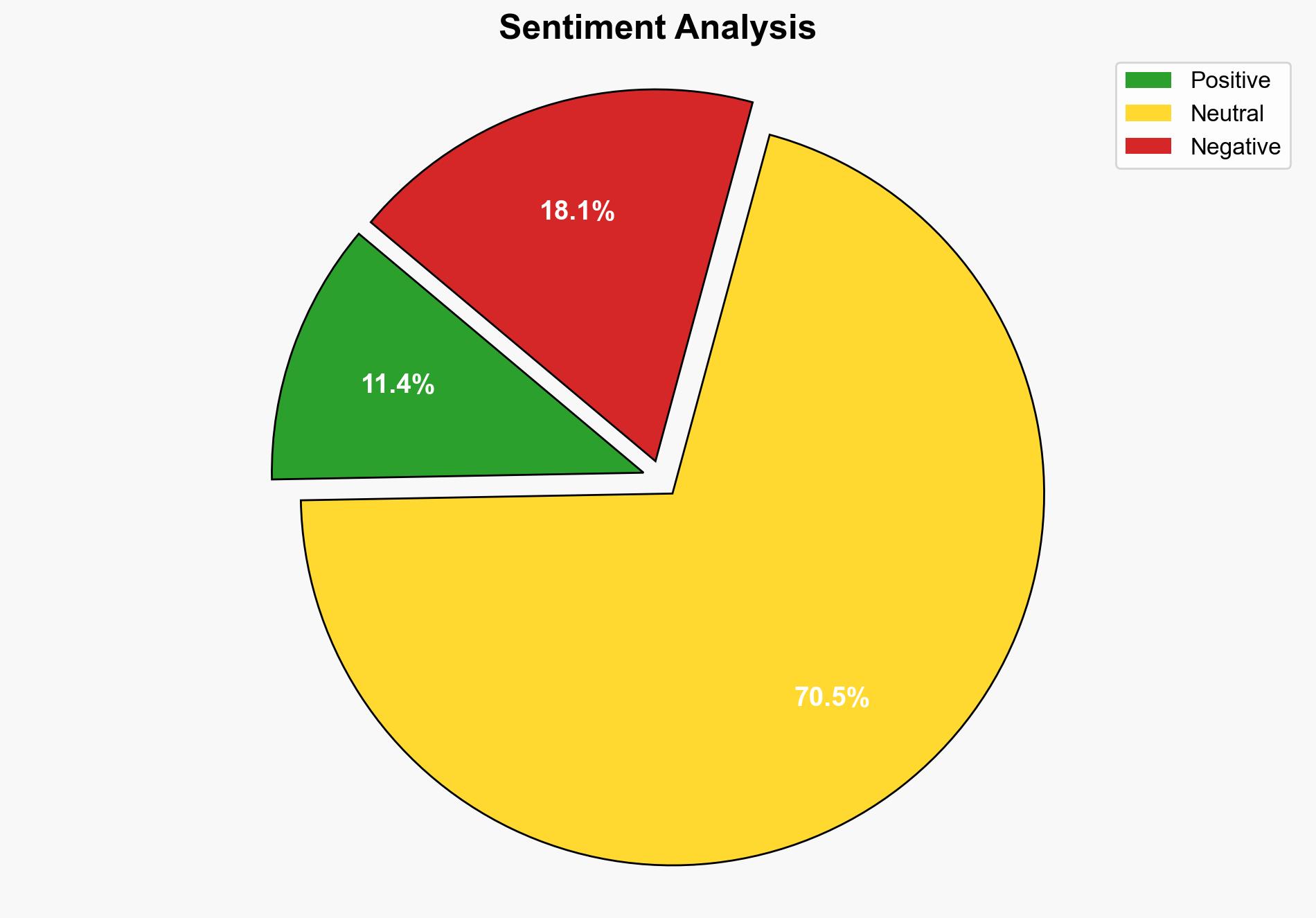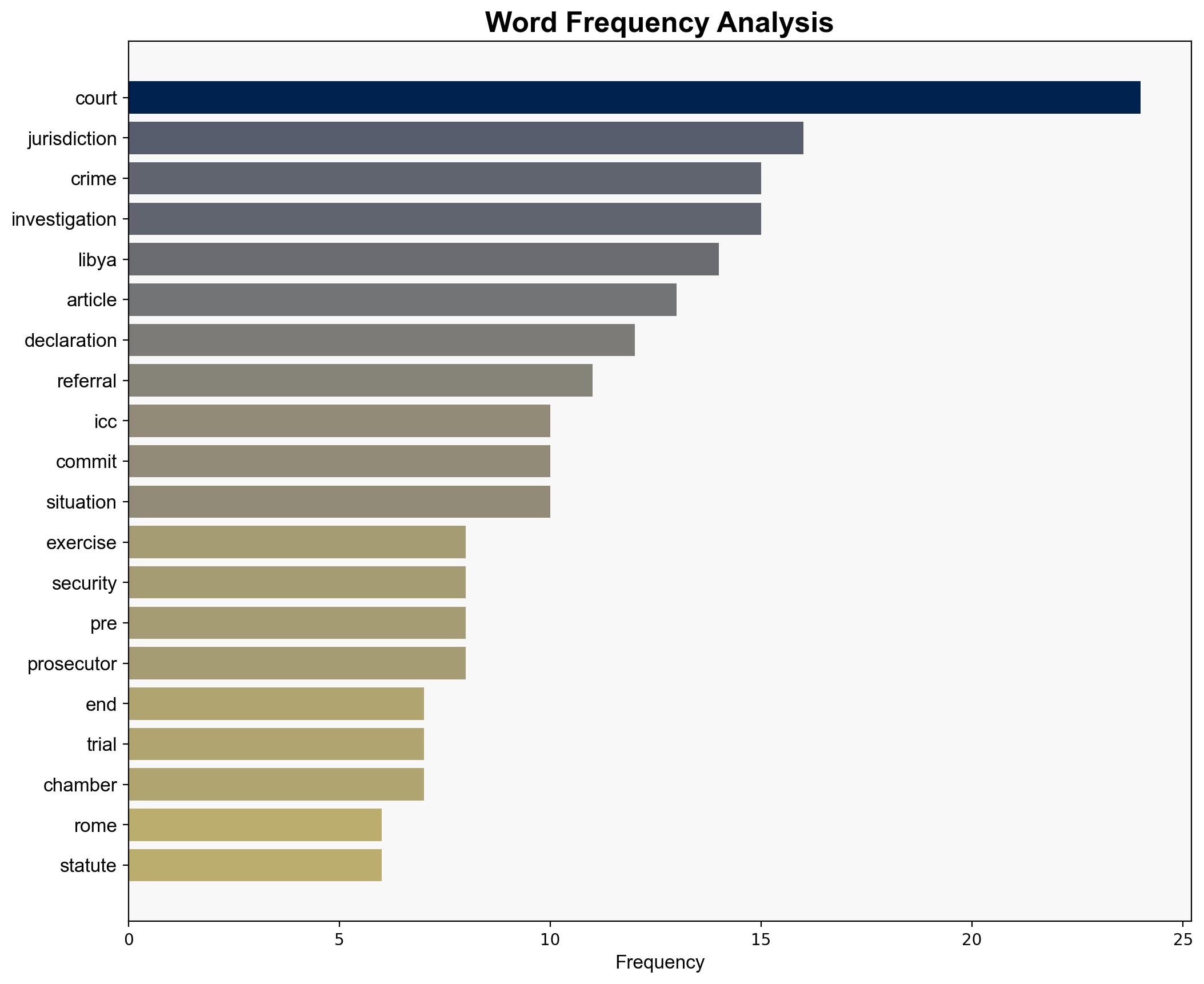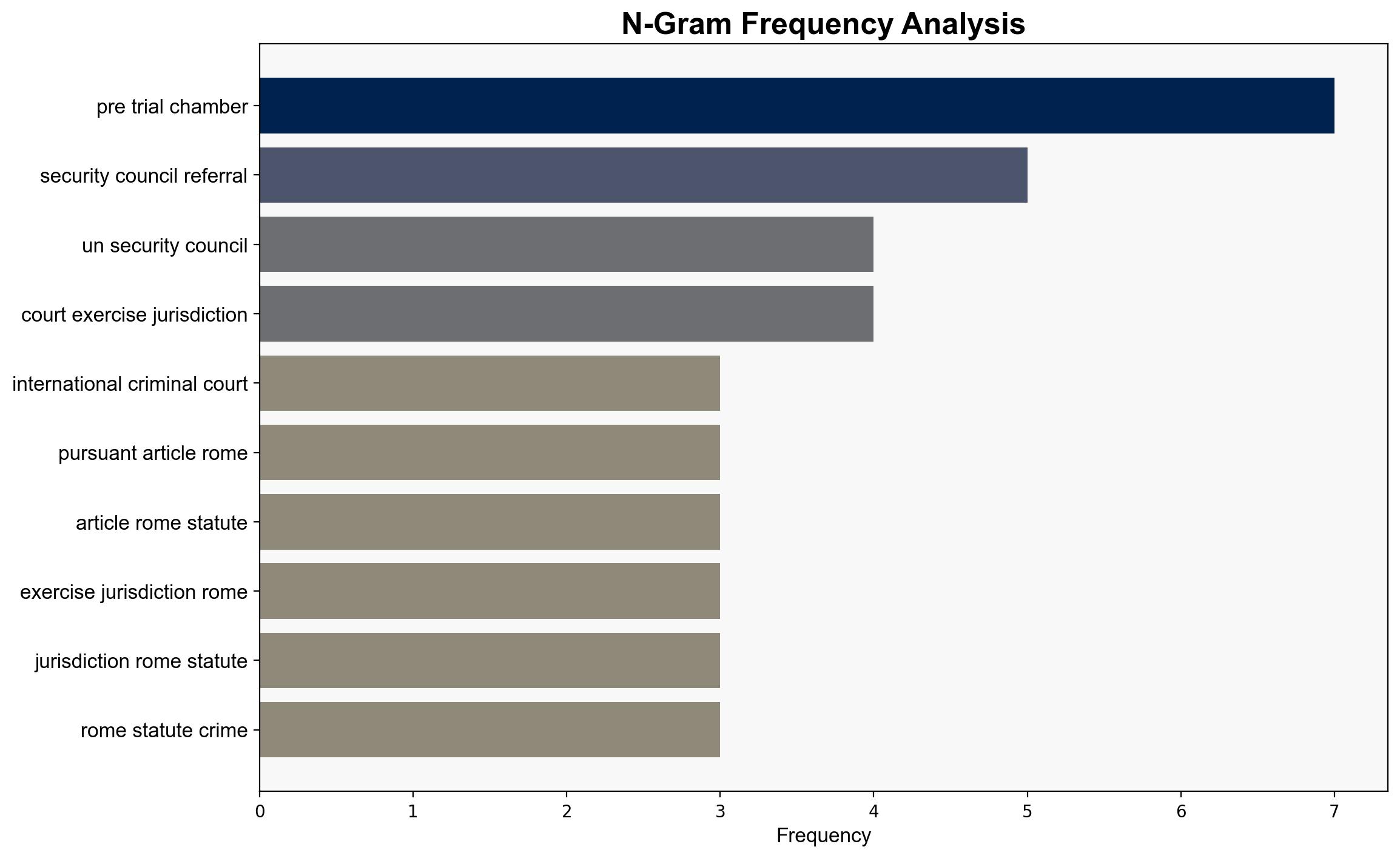Libyas Acceptance of the International Criminal Courts Jurisdiction Stakes and Implications – Opiniojuris.org
Published on: 2025-08-08
Intelligence Report: Libya’s Acceptance of the International Criminal Court’s Jurisdiction Stakes and Implications – Opiniojuris.org
1. BLUF (Bottom Line Up Front)
Libya’s acceptance of the International Criminal Court’s (ICC) jurisdiction could either stabilize the region by holding perpetrators accountable or exacerbate tensions by challenging existing power structures. The hypothesis that this acceptance will lead to increased accountability and stabilization is better supported. Confidence level: Moderate. Recommended action: Support international legal frameworks and monitor regional responses closely.
2. Competing Hypotheses
1. **Hypothesis A**: Libya’s acceptance of ICC jurisdiction will lead to increased accountability and stabilization in the region. This is supported by the potential for international oversight and the dismantling of militias, which could reduce violence and impunity.
2. **Hypothesis B**: Libya’s acceptance of ICC jurisdiction will exacerbate tensions and conflict within the country. This could occur if factions perceive the ICC’s actions as biased or as a threat to their power, potentially leading to increased resistance and violence.
Using ACH 2.0, Hypothesis A is better supported due to the alignment with international norms and the potential for external pressure to enforce accountability. However, Hypothesis B remains plausible given the complex power dynamics in Libya.
3. Key Assumptions and Red Flags
– **Assumptions**: It is assumed that the ICC can operate impartially and effectively in Libya. There is also an assumption that international pressure will lead to compliance by Libyan factions.
– **Red Flags**: The potential for biased ICC actions or perceptions thereof, and the possibility of non-cooperation by key Libyan actors.
– **Blind Spots**: The internal dynamics of Libyan militias and their potential reactions to ICC interventions are not fully understood.
4. Implications and Strategic Risks
– **Implications**: Successful ICC jurisdiction could lead to a reduction in militia power and increased political stability. Conversely, it could also lead to fragmentation if perceived as illegitimate.
– **Strategic Risks**: Escalation of conflict if factions resist ICC actions, potential for increased external intervention, and destabilization of neighboring regions.
– **Geopolitical Dimension**: The involvement of international bodies like the ICC could shift power balances and influence in the region.
5. Recommendations and Outlook
- Support ICC efforts with diplomatic backing and resources to ensure impartiality and effectiveness.
- Engage with Libyan factions to promote dialogue and reduce resistance to ICC actions.
- Monitor regional responses and prepare for potential escalation scenarios.
- Scenario Projections:
- Best Case: ICC actions lead to reduced violence and increased political stability.
- Worst Case: ICC actions trigger increased conflict and regional instability.
- Most Likely: Mixed outcomes with some accountability achieved but ongoing tensions.
6. Key Individuals and Entities
– Osama Elmasry Njeem: Subject of an ICC arrest warrant.
– Kaniyat Militia: Involved in alleged crimes linked to the ICC’s jurisdiction.
7. Thematic Tags
national security threats, international law, regional stability, conflict resolution





